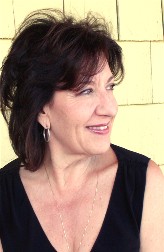The need for home health services (or just a plain home health) arises under various circumstances. Most often, the need for home health is temporary for as long as the patient recuperates. It may be necessitated by a sudden illness. It may occur in the aftermath of an accident. It may be needed in the course of a disability. Finally, it may be required for an elderly person who’s no longer able to care for him or herself.
Whatever may have led to your interest in home health, immediate family members – and / or a spouse as it may be the case – often times feel guilty about relying on strangers for care of a loved one. The truth is – with all due respect to your feelings – not being qualified to provide medical care, not being able to provide immediate personal care to a person who is either ill, disabled or elderly; or even not having the time to tend to such a person is nothing to feel guilty or embarrassed about. Failing to ensure that the person in need of care is well taken care of by a qualified and licensed professional, now that’s shameful, not to mention neglectful. So put your apprehension aside and let’s explore the available options in Los Angeles home health and L.A. home care; yes, there is a difference.
About Los Angeles home health:
Assuming you have no prior experience, not all of home health services are equal. There are organizations that specialize in providing for personal care only which may be appropriate in a case of an older person who has trouble with grooming, getting dressed and other personal needs, including meal preparation and running errands. This would be akin to senior care.
Other L.A. home health providers are focused on providing for medical needs. Some provide for both: personal and medical needs.
The home care only services are self-explanatory, so lets focus here on home health services. Home health serves one main goal, enabling the patient to stay at home so he or she can heal better and feel better in comfortable and familiar surroundings.
Many home health service organizations provide skilled nursing and / or therapy services such as:
- Vital Signs and Glucose Monitoring
- Catheter Care
- Pain Management
- IV therapies (Antibiotics / Hydration)
- Administration of Injections
- Post-Surgical Care
- Rehabilitation
- Wound Care
Some Los Angeles home health organizations may have on their staff a licensed dietician as well as physical, speech and occupational therapists, even medical social workers. Regardless of the spectrum of home health services provided, these are specific to a patient care.
Before exploring the waters and even attempting to hire either a home health or home care provider, you must be aware of it that in L.A. (and in California at large) there are strict regulations and licensing requirements for both. Be sure that the provider you’re considering holds the required licenses; if you don’t, you – or worse yet, the person for whom you’re seeking care! – may end in all sorts of trouble. One more thing, most of Los Angeles home health providers have a minimum hours requirement. Ask about it before making a commitment. Now you know, sometimes home health or home care are a necessity, armed with some information you’ll be able to choose the provider who meets your specific needs best.

